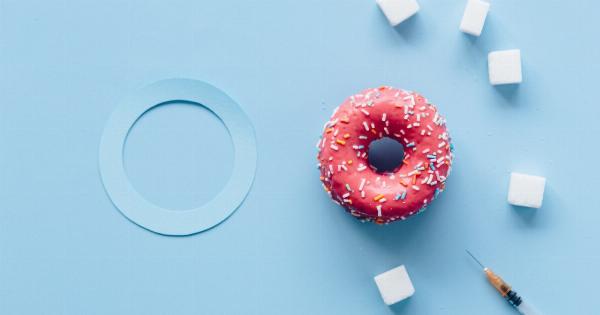Have you ever eaten a big meal but still feel hungry? It might be confusing and frustrating, especially if you are trying to maintain a healthy weight. There are several reasons why you may still feel hungry even after eating enough.
Let’s dive in to find out more.
1. Lack of Fiber
Fiber-rich foods help make us feel satiated and full for longer periods. However, low-fiber meals can leave us feeling hungry even after eating.
Foods such as whole grains, fruits, and vegetables are great sources of fiber and can help keep you feeling full throughout the day. When you lack fiber, you might feel hungry more often, and you may eat more calories than you need to feel satiated.
2. Dehydration
Dehydration can cause your stomach to feel empty, even if you have recently eaten. This is because the body sometimes confuses thirst and hunger. You might think you’re hungry, but you’re just thirsty.
Drink enough water throughout the day, especially after meals, to prevent dehydration.
3. Eating Too Quickly
Eating quickly can make you feel hungry even after eating enough. Your stomach may not have enough time to send the signal to your brain that it’s full. Consequently, you might end up overeating without a sense of satisfaction.
To overcome this, try chewing your food slowly, pausing between bites, and focusing on enjoying your meal.
4. Lack of Protein
Proteins take longer to digest than carbohydrates and fats, making them more effective at keeping you feeling full for an extended period. A high-protein meal can help curb your hunger.
If you notice yourself feeling hungry after eating, consider adding more protein to your diet. Good protein sources include eggs, nuts, seeds, beans, tofu, and lean meat.
5. Not Enough Sleep
Sleep deprivation can affect your hormones, particularly those that regulate hunger and fullness. Lack of sleep can cause an increase in ghrelin, a hormone that stimulates appetite, and a decrease in leptin, a hormone that suppresses appetite.
As a result, you may find yourself craving high-calorie foods even when you’ve eaten enough. Make sure you get enough sleep each night to help regulate your hormones and lower your appetite.
6. Stress
Stress triggers the release of cortisol, which can increase your hunger. Stressful situations can also make you crave unhealthy foods such as sugar and fats. More so, stress can interrupt your sleep, making you wake up hungry.
Practice stress management techniques such as deep breathing, meditation, or yoga to reduce your stress levels.
7. Consuming High-calorie Foods
Consuming high-calorie foods may quickly spike your blood sugar levels, leaving you hungry soon after eating. Foods such as candy, white bread, and sugary drinks lack fiber and protein, making it easy to overconsume.
Instead, choose high-fiber, protein-rich foods like nuts, fruits, vegetables, and whole grains. These foods can satisfy your hunger and keep you full for longer periods.
8. Medical Conditions
In rare cases, conditions like diabetes, hyperthyroidism, and hypoglycemia can cause an increase in appetite. These conditions can alter your hormones and lead to a disruption in your hunger and fullness signals.
If you suspect you have a medical condition that might be causing you to feel hungry even after eating, seek a medical diagnosis.
9. Overtraining
Overtraining can cause you to feel hungry more often and lead to overconsumption. Depending on the intensity and duration of your workout, your body might require more nutrients than it usually does. You may end up overeating to satisfy the hunger.
To avoid this, make sure you’re consuming enough calories for your body’s needs and refuel after workouts with nutrient-dense foods.
10. Skipping Meals
Skiping meals might seem like an excellent way to reduce your caloric intake, but it may end up making you feel hungry all day.
When you skip meals, your body goes into starvation mode and releases the hunger hormone ghrelin, which increases your appetite and cravings for sugary, high-calorie foods. Instead of skipping meals, eat small, nutrient-rich meals throughout the day.
In Conclusion
Feeling hungry, even after eating, might be due to several factors such as low fiber diet, dehydration, and lack of sleep.
Practicing stress management, consuming high-fiber, protein-rich foods, avoiding skipping meals, and getting enough sleep can help prevent you from feeling hungry after eating. If you persistently experience the symptoms, consider seeking medical advice to rule out any underlying medical condition.


























